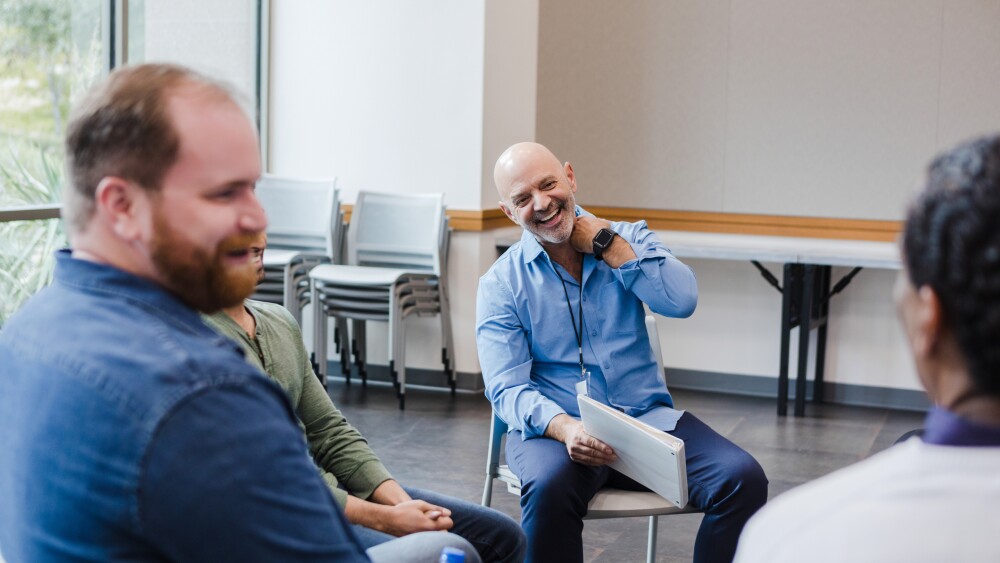The concept of wellness has only recently entered the cultural zeitgeist for first responders. The acceptance and adoption of wellness practices has been slow, and we still have a long way to go, but the improvements over the last decade have been significant. As we learn more about first responder wellness, on both an individual and cultural level, we must understand how to propel and encourage wellness within our agencies and our personnel. Ultimately, each of us must take extreme ownership of our own wellness and the wellness of our colleagues.
In a recent webinar with Lexipol and Echelon Front, “How to Use Extreme Ownership Leadership Principles to Build a Culture of Wellness in Your Agency,” Jocko Willink, Dr. David Black, Dr. Jaime Brower and Mandy Nice discuss what it means to create a wellness culture and how we get there.
Operational readiness & leadership
“In the SEALs, we would talk about our operational readiness—that was our biggest concern,” says Willink, who spent 20 years with the SEAL teams. “A component of operational readiness is how people are doing outside of just being able to do the job.” In public safety, we must continue to assert the importance of wellness for our people. When our first responders are well, they are better able to serve the community, their colleagues, their families and themselves. On the flip side, Willink continues, “If their life is falling apart, their health is falling apart, their family’s falling apart, they are not going to have the operational readiness we hold in such high regard.”
Public safety agencies and leaders have a responsibility to care for their personnel and support personnel wellness—to ensure their personnel are up for the job (“operationally ready”) and to create an environment where personnel can thrive. A good leader will take extreme ownership of the wellness culture at their agency and the individual wellness of their personnel. “You have to implement changes that provide a positive influence on your team,” Willink asserts. As a leader, you do have influence and the ability to make a positive change, but you have to take ownership of that ability and responsibility.
Foundations of a wellness culture
Agency leaders play a critical role in “building that culture of wellness that supports quality of life for their personnel,” Nice explains. Leaders set the tone for agency culture across the board—including when it comes to wellness. That means personnel need to see their leaders supporting and engaging with the wellness program, and even utilizing the resources themselves. This is foundational in efforts to “smash the stigma” and bring wellness into every aspect of our agencies and our lives.
Dr. Black outlines key focus areas for agencies who are on the road to (or just getting started with) creating a wellness culture:
- Confidentiality: More than most professions, first responders require confidentiality in wellness. Agencies must provide the help personnel need, when they need it and without fear of repercussions.
- Leading from the front: It’s up to leaders to set the tone and create an agency culture that supports wellness. Buy-in from the top trickles down to all personnel and members of the team.
- Policies: As with any agency program, your wellness program needs proper guardrails in place to ensure it runs smoothly, is effective, and meets the needs of your personnel while maintaining regulatory compliance.
- Self-help resources: First responders are capable people who want to feel empowered when it comes to their wellness. By providing resources that support and equip personnel, you can help them better help themselves and their colleagues.
- Peer support: Peer support, when done well, not only offers personal and relatable guidance, but can also act as a conduit for providing a wider range of wellness resources to all
- Family: Families play an essential role in the wellness of first responders. Including the spouse, children and other family members in wellness initiatives can drive buy-in and ensure wellness resources and support are being carried into responders’ personal lives.
- Vetted, trained therapists: A clinician who is not culturally competent and does not understand the challenges first responders face can do more harm than good. At the agency level, we must ensure the therapists we recommend are trained and able to effectively support and address the mental, emotional and behavioral health needs of public safety professionals.
- Crisis support: Research has shown that mental health crisis (such as suicidal ideation) spikes momentarily—sometimes over the span of a single hour. Having an immediate crisis support structure in place ensures personnel are able to get competent support when they need it.
Building Relationships: “Swim Buddies”
Beyond the wellness programs our agencies implement, one of the most important things we can do is build relationships—and encourage our personnel to build relationships with one another, through mentorships, partnerships and friendships. Willink offered an example from his time in the Navy SEALs: “We have something that we establish in the SEAL teams: a swim buddy…That’s really the first line of defense—who’s your partner out there, who’s your swim buddy?” A “swim buddy” is someone who you check in on and who checks in on you. It’s about building a relationship in which your buddy knows and can support you, and vice versa. If you see someone struggling, “stay humble and invite that person to partake in a healthy habit with you,” Nice says. Small, simple steps can often be the most effective.
“Shared experience sets the baseline for the relationship,” says Dr. Black. The people who understand what we’re going through are the people who are going through it, too. Our colleagues, our brothers and sisters in public safety, can help and support us—and we can do the same for them.
Learn more about strategies for creating a culture of wellness among the first responders in your agency and watch the full on-demand webinar, “How to Use Extreme Ownership Leadership Principles to Build a Culture of Wellness in Your Agency,” with Jocko Willink, Dr. David Black, Dr. Jaime Brower and Mandy Nice.



